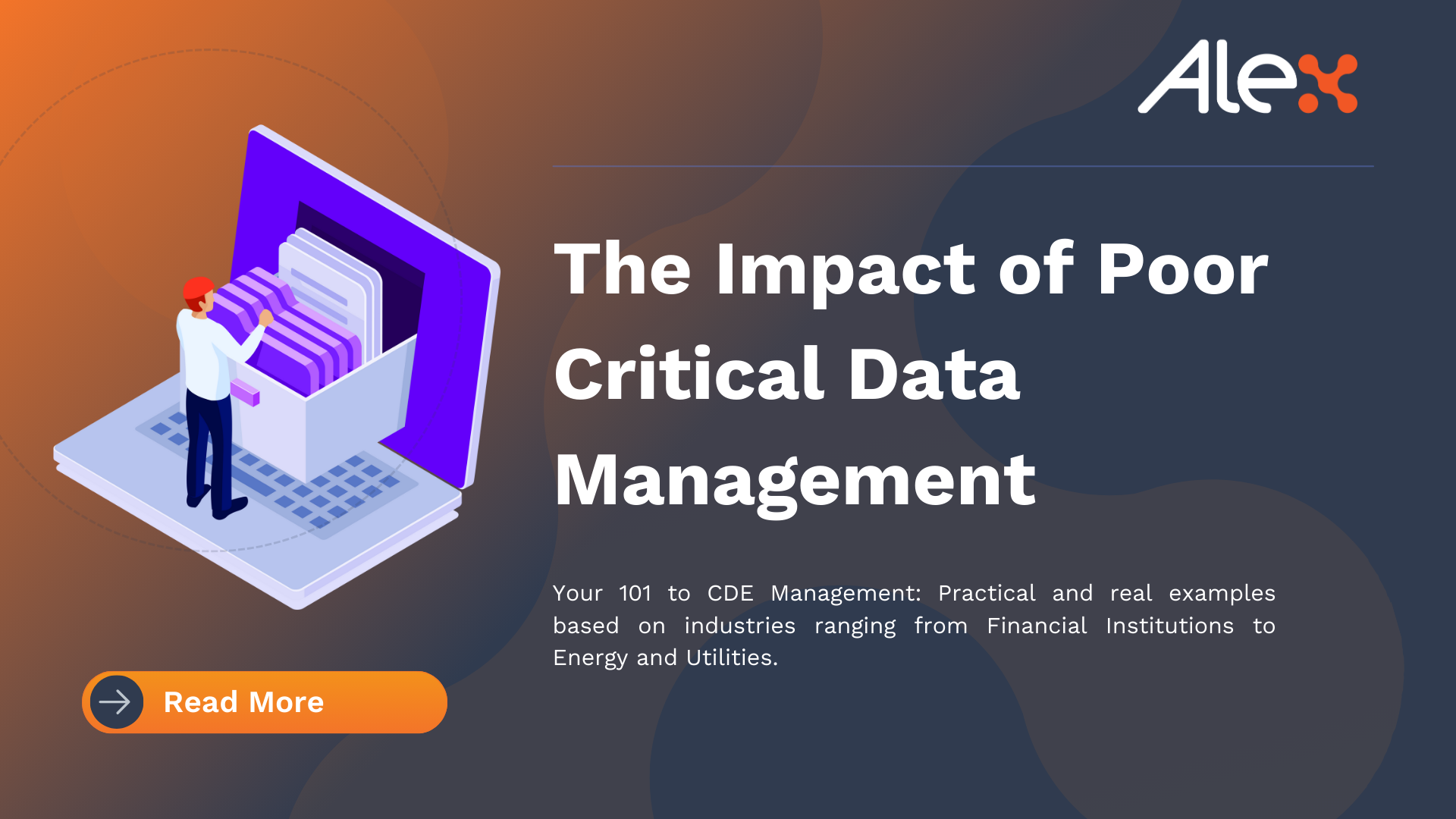In the rapidly evolving landscape of enterprise data management, the convergence of generative AI and data quality governance is emerging as a game-changer. As organizations seek to extract actionable insights from vast amounts of data, the synergy between these two domains is proving to be a potent combination. In this article, we explore how enterprise generative AI and data quality governance can benefit ach other, paving the way for enhanced decision-making, innovation, and competitive advantage. Generative AI Data Quality Governance emerges as the key way enterprises can synergies generative AI and data quality governance
Enhanced Data Accuracy and Reliability
Integrating generative AI and data quality governance can significantly enhance the accuracy and reliability of data-driven insights. Generative AI models, such as GPT and DALL-E, rely on large datasets to learn and generate outputs. However, if the underlying data is of poor quality, it can lead to inaccurate or biased results. By ensuring that data is clean, consistent, and reliable, organizations can improve the performance of their generative AI models.
Poor data quality can lead to biased outputs from generative AI models, impacting decision-making and potentially leading to unfair practices. Additionally, data inconsistencies can result in inaccurate insights, leading to flawed strategies and missed opportunities. Ensuring data quality is crucial for regulatory compliance, especially in industries with strict regulations such as healthcare and finance.
Improved Data Governance
Data governance is essential for managing data effectively and ensuring that it complies with regulatory requirements and internal policies. By integrating generative AI and data quality practices, organizations can improve their data governance processes. Generative AI can help identify patterns and anomalies in data, while data quality practices can ensure that these insights are based on accurate and reliable data.
Data privacy is a key challenge for organizations, especially with the increasing amount of data being collected and analyzed. Security breache and cyber-attacks are a constant threat, making data security a top priority for organizations. Data silos can hinder data governance efforts, making it difficult to access and analyze data across the organization.
Enhanced Data Discovery and Exploration
Generative AI can play a crucial role in enhancing data discovery and exploration. By analyzing large datasets, generative AI models can uncover hidden patterns and relationships that may not be apparent to human analysts. This can help organizations identify new opportunities, trends, and insights that can drive innovation and growth.
The sheer volume and complexity of data available can make it challenging to identify relevant insights and trends. Integrating data from disparate sources can be complex and time-consuming, leading to delays in data analysis and decision-making.
Accelerated Innovation
Innovation is essential for staying competitive in today’s fast-paced business environment. Generative AI and data quality can help accelerate the innovation process by generating new ideas, concepts, and designs based on existing data. When combined with high-quality data, this can lead to breakthrough innovations that can give organizations a competitive edge.
Organizations face increasing pressure to innovate and differentiate themselves from competitors. Bringing new products and services to market quickly is essential for staying ahead of the competition. Limited resources can hinder innovation efforts, making it challenging to explore new ideas and concepts.
Cost Savings and Efficiency
Improving the accuracy and reliability of AI models can lead to cost savings and increased efficiency. Generative AI can help automate repetitive tasks and streamline processes, leading to cost savings. Additionally, by ensuring that their data is of high quality, organizations can avoid costly errors and rework, further improving their bottom line.
High operational costs can eat into profits, making it difficult to invest in innovation and growth. Limited resources need to be allocated efficiently to maximize returns and minimize waste. Inefficient processes can lead to delays and errors, impacting productivity and profitability.
Better Decision-Making
Data-driven decision-making is essential for success in today’s business world. By combining generative AI and data quality, organizations can improve their decision-making processes. Generative AI can help identify trends and patterns in data, while data quality practices can ensure that these insights are based on accurate and reliable data.
The abundance of data can make it challenging to identify relevant information and make informed decisions. Decisions are often complex, requiring a deep understanding of the underlying data and potential implications. Making decisions involves managing risks, including financial, operational, and reputational risks.
Enhanced Customer Experiences
Customer experience is a key differentiator for many organizations. Generative AI can help enhance customer experiences by analyzing customer data and personalizing offerings and communications. This can lead to improved customer satisfaction and loyalty, ultimately driving business growth.
Customers expect personalized experiences across all touchpoints, making it challenging for organizations to meet these expectations. The competitive landscape is constantly evolving, making it essential for organizations to differentiate themselves through superior customer experiences. Building brand loyalty requires consistently delivering exceptional customer experiences, which can be challenging in a highly competitive market.
Future-Proofing
As technology continues to evolve, organizations must future-proof their data management practices. By integrating generative AI and data quality, organizations can ensure that they are well-positioned to take advantage of future advancements in AI and data analytics. This can help them stay ahead of the competition and continue to innovate in the rapidly changing business landscape.
Rapid technological advancements require organizations to adapt quickly to stay competitive. Ensuring data governance practices are robust and scalable to accommodate future data needs. The skills gap in AI and data analytics can hinder organizations’ ability to leverage new technologies and innovations.
In conclusion, the synergy between enterprise generative AI and data quality offers a host of benefits for organizations looking to extract maximum value from their data. By enhancing data accuracy and reliability, improving data governance, accelerating innovation, and improving decision-making, organizations can gain a competitive edge and drive business growth. As technology continues to evolve, organizations that embrace this synergy will be well-positioned to succeed in the digital age.
Alex Automated Data Quality Solution for Enterprises Leveraging Generative AI
Alex Solutions offers an automated data quality solution that is uniquely positioned to deliver significant benefits for enterprises leveraging generative AI. By integrating Alex’s solution with their generative AI initiatives, enterprises can address key challenges and unlock new opportunities for innovation and growth.
Enhanced Data Accuracy and Reliability
Alex’s automated data quality solution ensures that the data used to train and feed generative AI models is clean, consistent, and reliable. By automatically identifying and correcting errors, inconsistencies, and biases in the data, Alex’s solution helps improve the accuracy and reliability of AI outputs. This is crucial for ensuring that generative AI models produce reliable insights and drive informed decision-making.
Generative AI Data Quality Governance Improvement
Data governance is essential for managing data effectively and ensuring compliance with regulatory requirements. Alex’s solution helps enterprises establish and maintain robust data governance practices by providing visibility into data quality metrics and enabling proactive data management. This ensures that data used in generative AI applications is governed according to best practices and regulatory standards.
Accelerated Innovation
By automating data quality processes, Alex’s solution frees up valuable time and resources that can be redirected towards innovation. Enterprises can use this newfound agility to experiment with new ideas, concepts, and designs, accelerating the pace of innovation. This enables organizations to stay ahead of the competition and drive business growth through new products, services, and business models.
Cost Savings and Efficiency
Automating data quality processes with Alex’s solution can lead to cost savings and increased efficiency. By reducing the time and resources required to manage data quality manually, enterprises can lower operational costs and improve overall efficiency. This allows organizations to reallocate resources towards strategic initiatives that drive business value.
Better Decision-Making With Generative AI Data Quality
Alex’s solution provides enterprises with accurate and reliable data insights, enabling better decision-making. By ensuring that data used in generative AI applications is of high quality, organizations can make informed decisions that drive business success. This leads to improved business outcomes and a competitive edge in the market.
Enhanced Customer Experiences Through Generative AI Data Quality
By leveraging Alex’s solution to improve data quality, enterprises can enhance customer experiences. By analyzing clean, consistent, and reliable data, organizations can personalize offerings and communications, leading to improved customer satisfaction and loyalty. This helps drive business growth and build a strong brand reputation.
Future-Proofing Generative AI Data Quality
As technology continues to evolve, enterprises must future-proof their data management practices. Alex’s solution helps organizations adapt to new technologies and innovations by providing a scalable and flexible data quality platform. This enables enterprises to stay ahead of the curve and continue to innovate in the rapidly changing business landscape.




